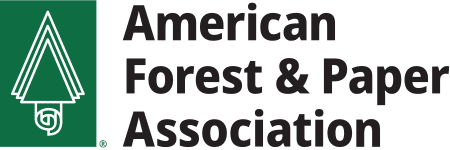Forest Products Industry Promotes Modernizing Clean Air Act Permitting Program in House Committee on Energy and Commerce Hearing Testimony
AF&PA and AWC Applaud Congressional and EPA Efforts to Revise Permitting Issues that will Allow Industry to Modernize Facilities to Reduce Emissions and Bolster American Manufacturing Competitiveness
WASHINGTON – On behalf of the American Forest & Paper Association (AF&PA) and the American Wood Council (AWC), AF&PA Vice President of Public Policy Paul Noe today gave oral testimony before the House Committee on Energy and Commerce, Subcommittee on Environment in their hearing titled, “Short-Circuiting Progress: How the Clean Air Act Impacts Building Necessary Infrastructure and Onshoring American Innovation.” In his testimony, Noe applauded legislation that would allow the paper and wood products industry to make capital investments to modernize their manufacturing facilities.
Throughout the hearing, discussion was heard by the committee on two bills that would make critical revisions to the National Ambient Air Quality Standard (NAAQS) setting and implementation process that would reduce the type of permit gridlock created when the particulate matter NAAQS was significantly lowered by the previous administration.
“We strongly support Congressmen Rick Allen and Buddy Carter in their efforts to address the impacts of air permitting issues on U.S. manufacturing,” said Noe.
“The proposed legislation (“The Clean Air and Economic Advancement Reform Act” and “The Clean Air and Building Infrastructure Improvement Act”) you are considering today would greatly improve the NAAQS program.”
AF&PA and AWC support several updated provisions in the proposed legislation, including:
- Requiring a workable implementation plan when standards are lowered so they can be successfully achieved;
- Establishing a 10-year review cycle to increase certainty and reduce wasteful litigation;
- Reforming the Exceptional Events program to ensure the use of prescribed burns to prevent wildfires – the largest source of particulate matter.
“We are also grateful that in March, EPA Administrator Zeldin recognized specific problems manufacturers are facing when he announced the Agency will quickly revisit the unworkable 2024 PM NAAQS Standard,” said Noe.
“The 2024 rule does not address 84% of particulate matter emissions, which come from non-industrial sources such as wildfires and road dust. Pulp, paper and wood product mills account for less than 1% of particulate matter.”
The forest products industry directly employs more than 925,000 people and is among the top 10 U.S. manufacturing sector employers in 44 states. The industry supports more than 1.6 million additional jobs across its suppliers and in local communities, many of which are in rural America.
